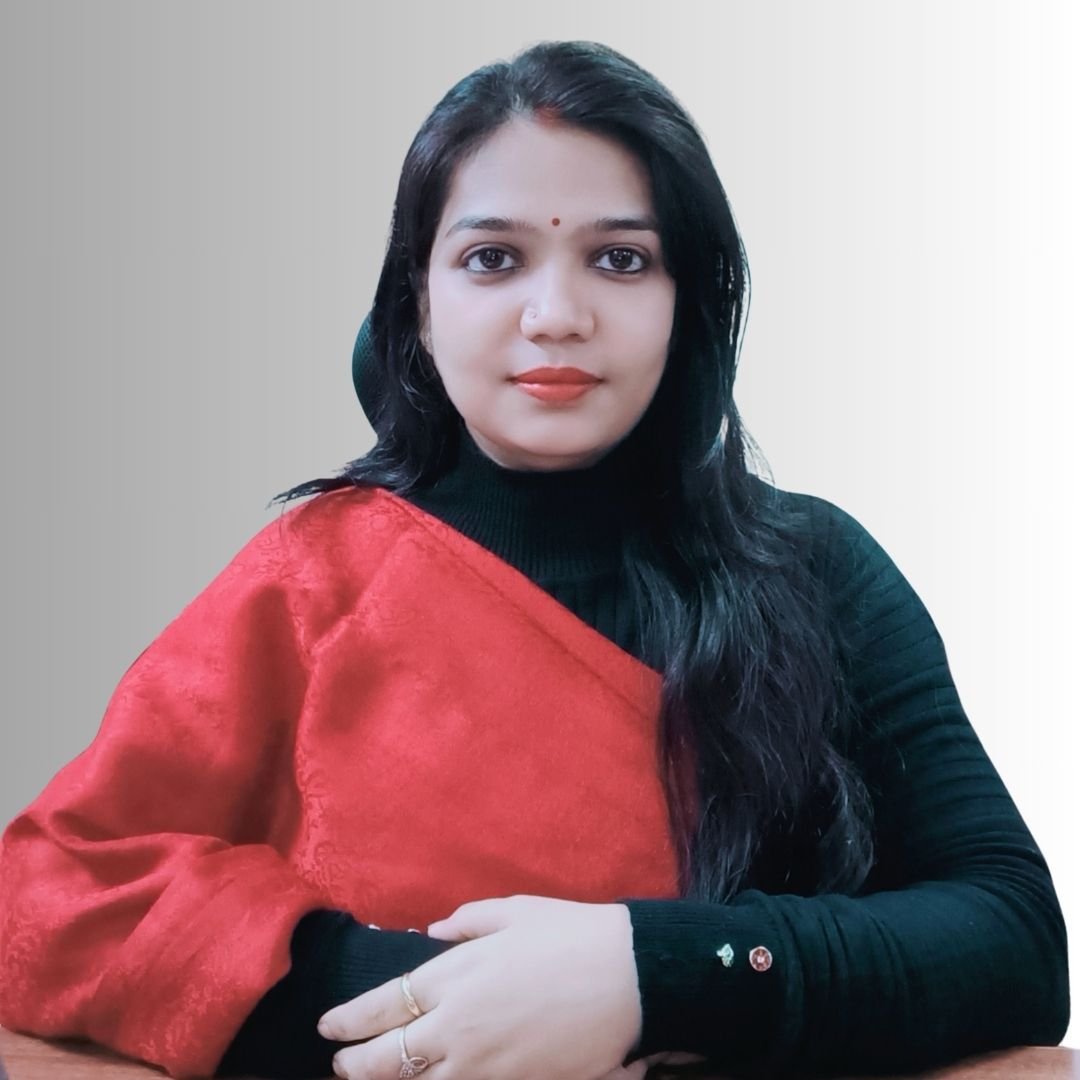Biotechnology
- HOD Message
- About Department
- Vision-Mission
- Program Educational Objectives (PEOs)
- Program Specific Outcomes (PSOs)
- Program Outcomes (POs)
- Career
- Facilities and Equipment
 Welcome to the Biotechnology Department. Our department is committed to providing students with a well-rounded education that prepares them for a successful career in biotechnology. Our experienced faculty and staff will ensure that you receive the best education and research opportunities that the field has to offer.
Welcome to the Biotechnology Department. Our department is committed to providing students with a well-rounded education that prepares them for a successful career in biotechnology. Our experienced faculty and staff will ensure that you receive the best education and research opportunities that the field has to offer.
Mrs. Shivani Singh
Head, Assistant Professor
The Biotechnology Department at B. Tech is dedicated to fostering innovation and creativity in the field of biotechnology. We provide an inclusive environment that encourages research, learning, and teamwork. Our students participate in exciting research projects that give them hands-on experience in their field of study. We utilize state-of-the-art technology in our programs to ensure that our students have access to the latest tools and techniques. Our department fosters teamwork and collaboration, encouraging students to work together and learn from each other.
Vision
To produce quality Biotech engineers tailored to promote innovation and dissemination of knowledge to benefit the environment and country as well as to gain excellence in various spheres of Biotechnology fortified to create graduates who endeavor societal welfare.
Mission
1: To incubate innovative ideas at innovations hubs and centre of excellences to design and develop products/applications followed by their up scaling and industrial tie-up.
2: To integrate the traditional and modern Biotechnology and educate students how they can provide benefits to industry, society and country by upgrading their skills with the help of state-of-the-art research labs and nurtured academics.
3: To participate in various academic/sports/social activities to develop their interpersonal skills of communication, team work and also learn moral/ethical practices.
PEO1. To translate Biotechnological principles into practical applications by promoting multidisciplinary research in house/government or private research labs.
PEO2. To Enrichment for understanding, learning and adopting any new technology thathelps update their pre-existing skill sets towards the benefit of all stakeholders.
PEO3. To develop confidence in speaking at a mass level, presentation of ideas and skill to discuss any scientific issue with scholars and laureates.
PSO1. Able to design protocols for synthesizing any product, and downstream processing including quality control which can be easily scaled up to fulfil market expectations.
PSO2. Learn various concepts, principles, methodologies and precautions of different tools & techniques covering every aspect of the Biotechnology domain used in research labs as well as industry level.
PSO3. Learn the necessary ethics required for the enhancement of academic and industrial practices with societal awareness which helps in higher education and professional life.
- PO1- Engineering knowledge: Apply the knowledge of mathematics, science, engineering fundamentals and an engineering specialization to the solution of complex engineering problems.
- PO2-Problem analysis: Identity, formulates, review the literature and analyze complex engineering problems reaching substantiated conclusions using first principles of mathematics, natural science, and engineering sciences.
- PO3-Design/development of solutions: Design solutions for complex engineering problems and design system components or processes that meet the specified needs with appropriate consideration for the public health and safety and the cultural, societal and environmental considerations.
- PO4-Conduct investigations of complex problems: Use research-based knowledge and research methods including design of experiments, analysis, and interpretation of data, and synthesis of the information to provide valid conclusions.
- PO5-Modern tool usage: Create, Select, and apply appropriate techniques, resources, and modern engineering and IT tools including prediction and modeling to complex engineering activities with an understanding of the limitations.
- PO6-The engineer and society: Apply reasoning informed by the contextual knowledge to assess societal, health, safety, legal and cultural issues and the consequent responsibilities relevant to the professional engineering practice.
- PO7-Environment and sustainability: Understand the impact of professional engineering solutions in the societal and environmental context and demonstrate the knowledge of, and the need for sustainable development.
- PO8-Ethics: Apply ethical principles and commit to professional ethics and responsibilities and norms of the engineering practice.
- PO9-Individual and team work: Function effectively as an individual and as a member or leader in diverse teams and in multidisciplinary settings.
- PO10-Communication: Communicate effectively on complex engineering activities with the engineering community and with the society at large, such as being able to comprehend and write effective reports and design documentation, make effective presentations, and give and receive clear instructions.
- PO11-Project management and finance: Demonstrate knowledge and understanding of the engineering and management principles and apply these to one’s own work, as a member and leader in a team, to manage projects and in multidisciplinary environments.
- PO12-Life-long learning: Recognize the need for, and have the preparation and ability to engage in independent and lifelong learning in the broadcast of technological change.
With a degree in biotechnology, our graduates can look forward to exciting and rewarding careers in a range of industries, including:
Pharmaceutical industry
- Research and Development
- Clinical Trials Management
- Quality Assurance
- Manufacturing and Production
Biomedical Research
- Academic Research
- Non-Profit Research
- Government Research
- Community Health and Education
Biotech Startups
- Entrepreneurship and Innovation
- Product Design and Development
- Marketing and Sales
- Business Management
Our Biotechnology Department has a range of cutting-edge facilities and equipment that help us provide our students with the best education and research opportunities possible.
Facilities
- Bioinformatics lab
- Biochemistry lab
- Genetics lab
- Molecular lab
Equipment’s
- Laminar air flow
- Incubator
- Autoclave
- Hot air oven
- Centrifuge
- Distillation unit
- Course Outcomes
Click on the link below to download the document file:
- Certification & Recognition
- Odd Semester
Click on the link below to download the document file:
Click on the link below to download the document file:
- Course Outcomes
Click on the link below to download the document file:
Faculty Details

Mrs. Shivani Singh
Head, Assistant Professor

Mrs. Shivani Singh
Head, Assistant Professor
Area of Interest: Biotechnology, Fermentaion Biotechnology
Total Experience: 5 Years

Mr. Rajiv Rai
Assistant Professor

Mr. Rajiv Rai
Assistant Professor
Area of Interest: Genetic Engineering, Plant Biotechnology
Total Experience: 15 Years

Mr. Anuj Yadav
Assistant Professor

Mr. Anuj Yadav
Assistant Professor
Area of Interest: Biotechnology
Total Experience: 5 Years
